Whether you want to squeeze in another crop or two before the first frost or are eager to harvest veggies in the spring, it’s helpful to know about fast growing vegetables. These can also be useful for filling in gaps in crop rotations.
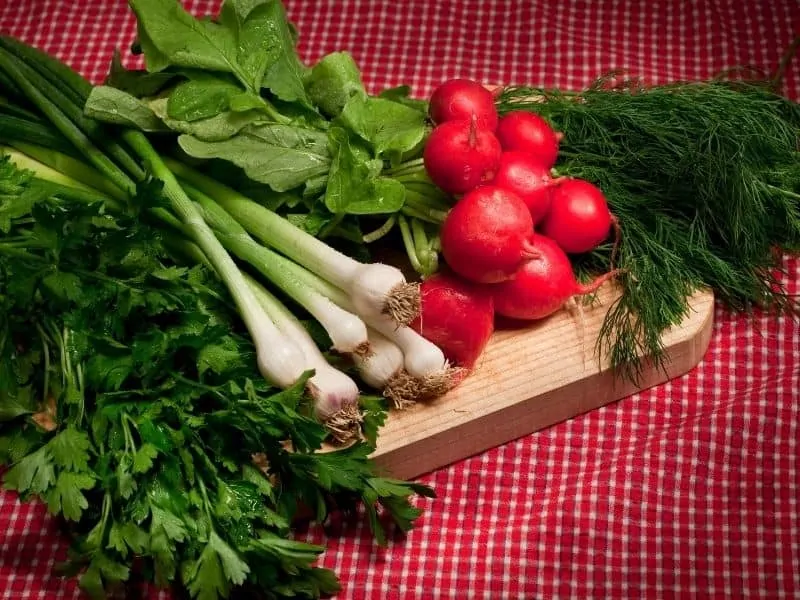
12 Fast Growing Vegetables to Plant for an Early Harvest
Tomatoes, peppers, and many other popular vegetables take a long time to mature, but there are also a lot of fast-growing vegetables you can plant to harvest sooner. Many of these quick-maturing plants even grow well in containers for patio gardening. The plants listed in this article mature in 60 days or less and some of them can be harvested in only 20!
Seed sowing tips
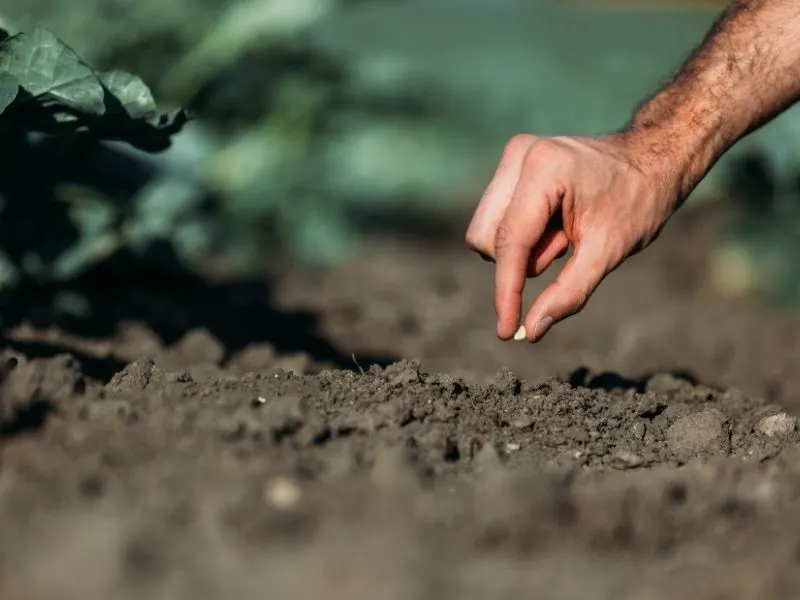
First, choose the right variety: those labeled “early” are often a good bet, and bush types often grow faster than vining types. Also, keep in mind that healthy plants tend to grow more quickly. To ensure good health in your plants, feed the soil with compost or organic fertilizer, and make sure to water regularly and deeply.
Many seeds germinate better in warm soil and others in cooler soil, so check the seed packets for optimal temperatures. Depending on when you plant your seeds, it may help to start them indoors. A heat mat underneath the tray will provide an additional boost of warmth.
Note that some plants, including most root vegetables, do better when direct-sown in the garden. In this case, make sure to thin the seedlings as soon as the first set of true leaves appears to ensure each plant has enough space to keep growing.
To help seeds germinate faster, try pre-sprouting them. Place the seeds on a damp paper towel in a sealed container, and set the container out of direct sunlight.
Make sure to keep different seeds separate, either by placing each type of vegetable in a different container or by drawing and labeling sections on the paper towel before wetting it.
Check the seeds at least once a day, as they can germinate in as little as one to three days, depending on the vegetable. Have your pots prepared so that as soon as roots appear, you can plant the germinated seeds.
Legumes, such as beans and peas, often benefit from a sprinkle of inoculant and soaking in water overnight before being directly sown in the garden. Inoculant can often be found in garden centers and farm stores.
Fastest growing vegetables from seed
The following vegetables can be harvested within sixty days of planting, and I have organized them in order of the shortest growing time to longest. Make sure to check the growing times listed on the seed packets (or in the catalog description), as some varieties take longer to mature than others.
1. Green Onions
20-60+ days
While bunching onions take an average of 60 days to reach full maturity, they can be harvested after just three to four weeks, before the bulb forms. Either dig up the whole plant at this stage or cut the greens one to two inches above the soil to allow the onions to continue growing. Plant as soon as the ground can be worked in the spring or in late fall to early winter.
For the shortest growing time, plant sets rather than seeds.
2. Radishes
24-60+ days
Radishes are an excellent quick-growing vegetable that can be used to fill in gaps in crop rotations or even interplanted with other vegetables.
When planting a slower-growing crop, sow radishes between the rows to be harvested before the main crop reaches maturity. Plant salad radishes as soon as the ground can be worked in the spring with successions through May, then start again in late August.
Winter storage radishes should be sown five to ten weeks before the first frost.
3. Spinach
25-50 days
Spinach can be harvested when the leaves are only two to four inches long and it’s especially good for salads at this stage. Direct sow seed as soon as the ground can be worked in the spring, then again in the fall about one month before the first frost.
Not only is spinach frost tolerant, but the leaves become sweeter with frosty weather.
4. Lettuce
25-60 days
Lettuce is perhaps one of the best options for a fast-growing vegetable, as it can be harvested early and often. Choose a baby or loose-leaf variety for a cut-and-come-again crop. Once the leaves reach at least three inches long, clip them with scissors about one inch from the growing point.
Plant in the spring and fall and harvest only in the early morning for the sweetest flavor. Summer heat encourages bolting, and lettuce harvested after midmorning will be more bitter.
Learn more about growing lettuce.
5. Arugula
30-40 days
As it’s one of the earliest salad greens to appear at farmers’ markets in the spring, there should be no surprise that arugula shows up toward the top of this list.
Plant as soon as the ground can be worked in the spring, and harvest when the leaves reach two to three inches long. Arugula can also be planted for a fall crop, though the harvest may be cut short by a good frost.
6. Fava Beans
30-50+ days
Fava beans take as long as 95 days to fully mature, but they make it on this list because the whole plant is edible, with different parts being harvested at different stages.
Harvest leaves and tender tops beginning at 30 days for use in salads, soups, stir-fries, and pesto, and pick young beans after only 50 days, or when about two to three inches long. These tender pods can be eaten whole like a snap bean.
In the northern half of the U.S., plant in early spring, and in warmer areas with mild winters, plant from October to December for a March harvest.
Learn more about how to grow beans in containers.
7. Bok Choy
30-60 days
Chinese cabbage matures in 50 to 60 days for whole-head harvesting, but the individual leaves may be cut as early as 30 days from planting. Choose a loose, or open-headed, variety to harvest leaves before the head matures, or select an early baby bok choy if you don’t mind waiting just a bit longer for the whole head.
Because the mature heads don’t tolerate heat, plant as early as possible in the spring, or wait until late summer for a fall harvest.
8. Baby carrots
36-50+ days
Although carrots take a long time to grow, they can be harvested before fully mature to be enjoyed as baby carrots. Choose smaller, early-maturing varieties for the quickest results, and plant in spring and fall.
Remember that the greens are edible, too, and are especially good in pesto, so don’t just toss them on the compost pile!
Related: how to grow carrots.
9. Turnips
40-60+ days (earlier for greens)
A multipurpose vegetable, turnips can be harvested for both their roots and greens. The greens will grow more quickly, allowing you to pick them before the roots mature – note that if you want roots and leaves from the same plant, you should pick only a few leaves at a time so as not to slow the growth of the roots.
Plant in the spring and at the end of summer.
10. Bush beans
40-60 days
Bush beans tend to grow faster than pole varieties and thrive in the warm, sunny weather of summer. Plant after the last frost and every three weeks through summer for a steady supply.
Bean seeds grow best in warm soil; if soil temperatures drop below 65 F, they may rot. Dark bean seeds are less likely to rot than lighter seeds.
11. Beets
50-60 days (earlier for greens)
Although beets fall toward the end of this list, their greens can be harvested in as little as 30 days. As with turnips, be careful not to harvest too many leaves from each plant before the roots mature. Younger leaves are great in salads, while older leaves should be cooked for the best flavor and texture.
Plant through the spring and in late summer; beets do not tolerate extended periods of hot weather. Learn more about growing beets.
12. Cucumbers
50-60+ days
Cucumbers may not be the first thing that comes to mind when thinking of quick-growing crops, but many varieties produce fruit in less than two months. Since cucumbers do not tolerate frost at all, plant at least one week after the last frost date.
Water lightly until seeds emerge, then water deeply and regularly to ensure the sweetest cucumbers.
Fastest growing vegetables in pots
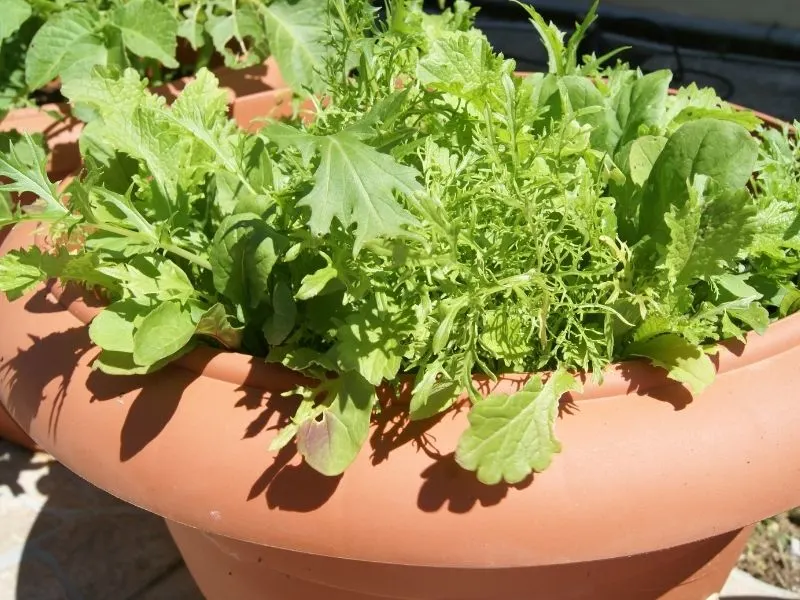
Most of the vegetables listed above also grow well in containers, so if you have limited space, you can still enjoy fast-growing vegetables from your balcony or patio garden.
Pay attention to plant spacing requirements when choosing containers and deciding how many plants to put in each. Some plants, like loose-leaf lettuce, don’t mind being a bit crowded, while others need a bit more space. The following vegetables are well suited for container gardening:
- Green onions
- Radishes
- Spinach
- Lettuce
- Arugula
- Baby carrots
Fast-growing spring vegetables
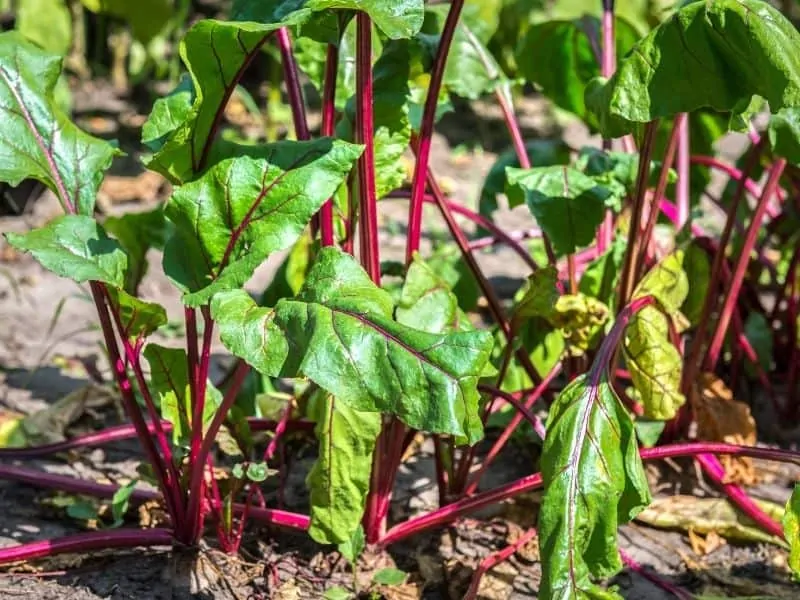
The following fast-growing vegetables can be grown in the spring. See the full list above for details on each type of fast-growing vegetable.
- Green onions
- Radishes
- Spinach
- Lettuce
- Arugula
- Fava beans
- Bok choy
- Baby carrots
- Turnips
- Beets
Fast-growing summer vegetables
Not many fast-growing vegetables tolerate extended periods of heat, but the following vegetables can be grown in the summer. See the full list above for details on each type of fast-growing vegetable.
- Radishes
- Bush beans
- Beets
- Cucumbers
Fast-growing fall vegetables
This list should look rather familiar, as it’s almost identical to the list of fast-growing spring vegetables. See the full list of fast-growing vegetables above for details on each plant.
- Green onions
- Radishes
- Spinach
- Lettuce
- Arugula
- Bok choy
- Baby carrots
- Turnips
- Beets
Fast-growing winter vegetables
These vegetables are frost-hardy and can often overwinter except in harsher northern climates. Your local extension office is often a good place to look for information on which plants to grow in the winter. Again, see the main list above for more details on each fast-growing vegetable.
- Green onions
- Spinach
- Fava beans
What plants grow in 30 days or less?
Hoping for exceptionally quick results? The following vegetables can be harvested in part or whole within 30 days. See the main list for details on each fast-growing vegetable.
- Green onions (20 days)
- Radishes (24)
- Spinach (25)
- Lettuce (25)
- Arugula (30)
- Fava beans (30)
- Bok choy (30)
While there are many fast-growing vegetables to choose from, I hope this list gives you a head start so you can enjoy a bountiful early harvest. Happy growing!
Serena Manickam is a freelance editor and writer and sustainable market gardener in rural Virginia. She holds a BA in environmental science and runs Fairydiddle Farm, a small market garden in which she grows no-spray produce and herbs to sell at a local farmer’s market.



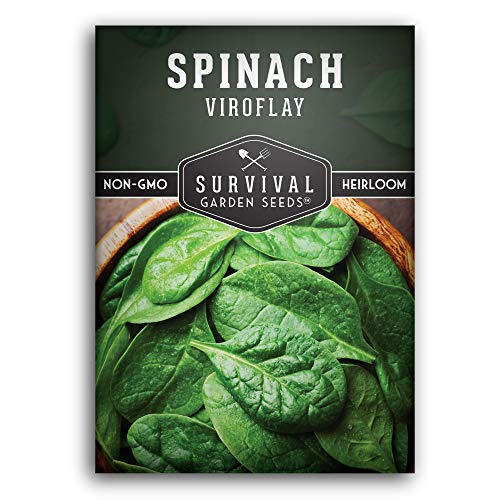
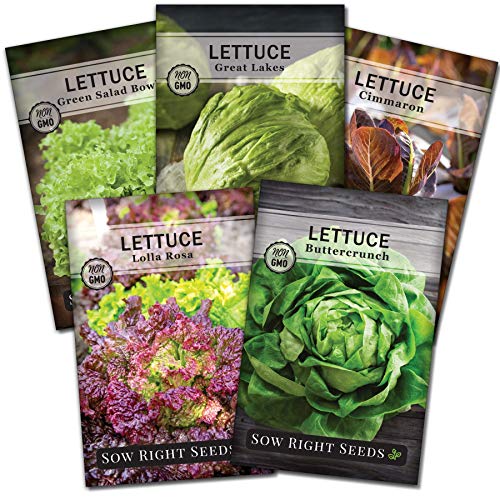
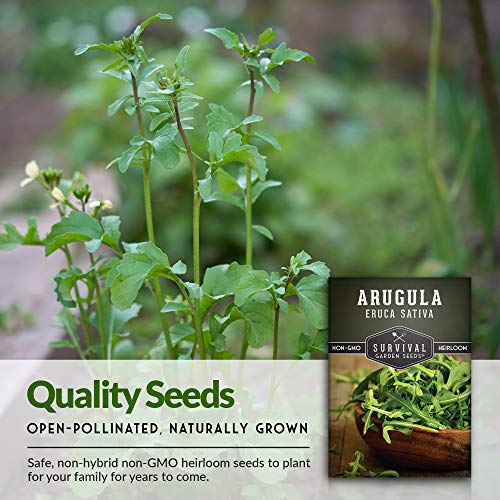



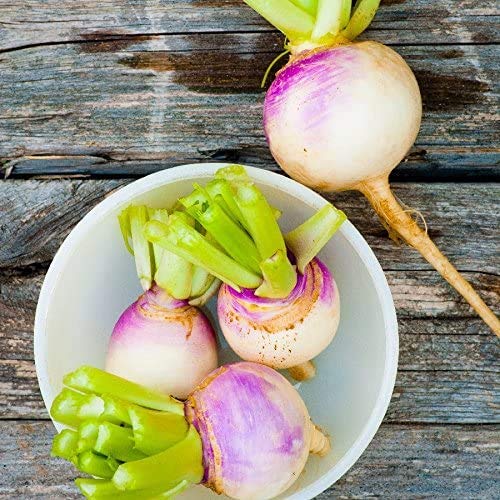




12 Best Companion Plants For Radishes (And 2 To Avoid)
Saturday 15th of July 2023
[…] are a wonderful fast-growing crop to grow in the vegetable garden. Because they take as little as three weeks to mature, I like to […]
Are Radish Seed Pods Edible? + 9 Delicious Ways To Use Them
Monday 20th of June 2022
[…] are one of the fastest-growing vegetables: after only 4 short weeks you can enjoy their crisp, spicy fruit. But what if you planted more than […]
Backyard Vegetable Garden Ideas
Monday 8th of February 2021
[…] 12 Fast-Growing Vegetables to Plant for an Early Harvest […]
7 Easy Vegetables To Grow This Spring
Wednesday 2nd of December 2020
[…] you’ll have a lot of fresh crops to harvest. I hope that this short guide inspired you to grow your own vegetables. If you have any questions, don’t hesitate to leave a […]
Vegetable Gardening For Beginners - A Complete Guide
Wednesday 2nd of December 2020
[…] them early because your vegetable plants will need enough time to grow and […]